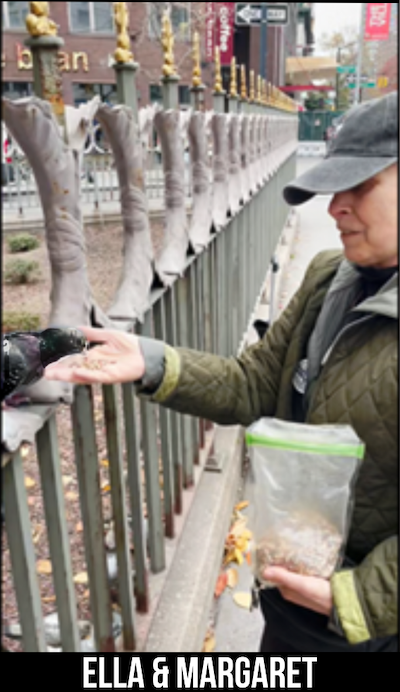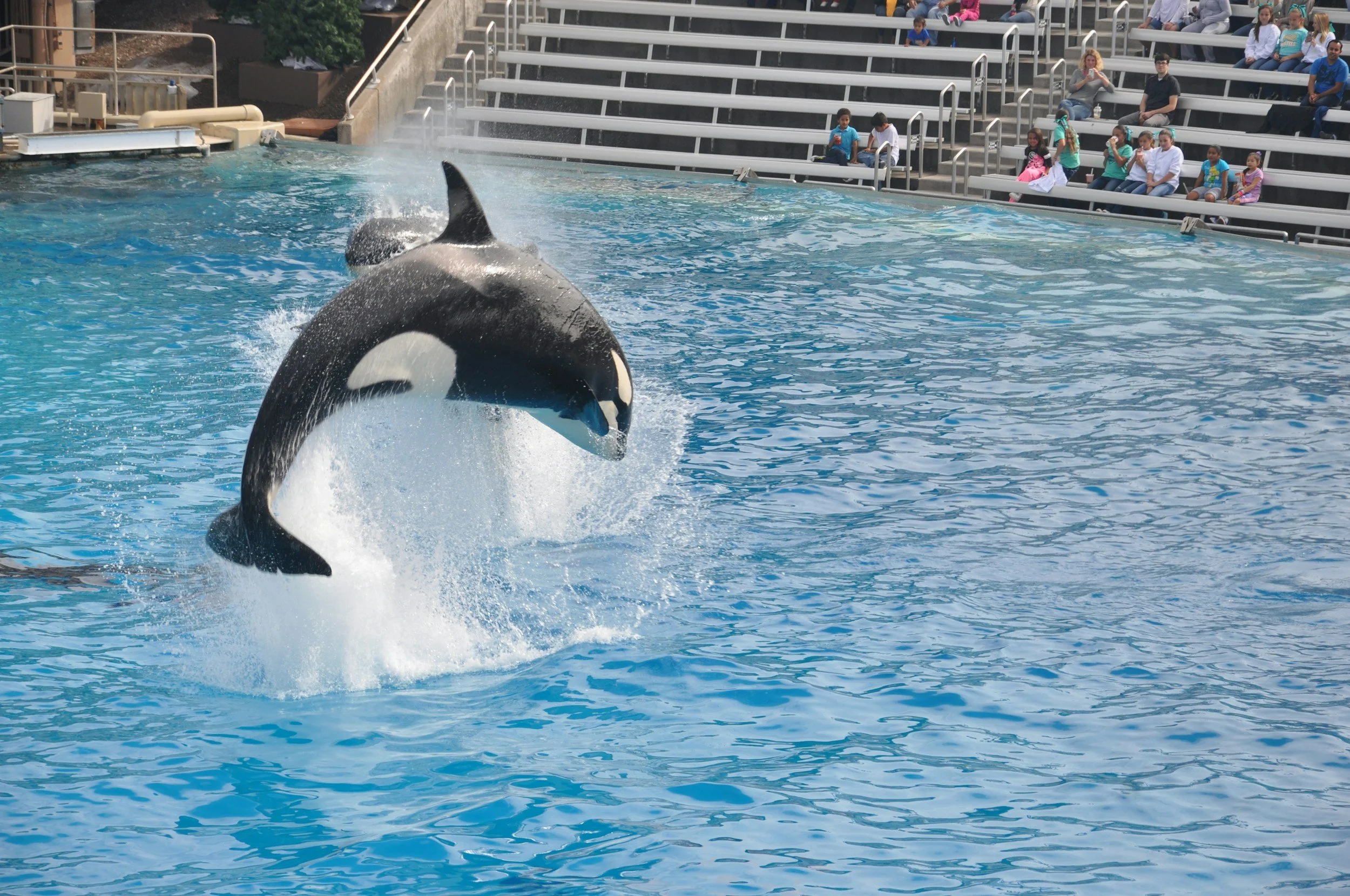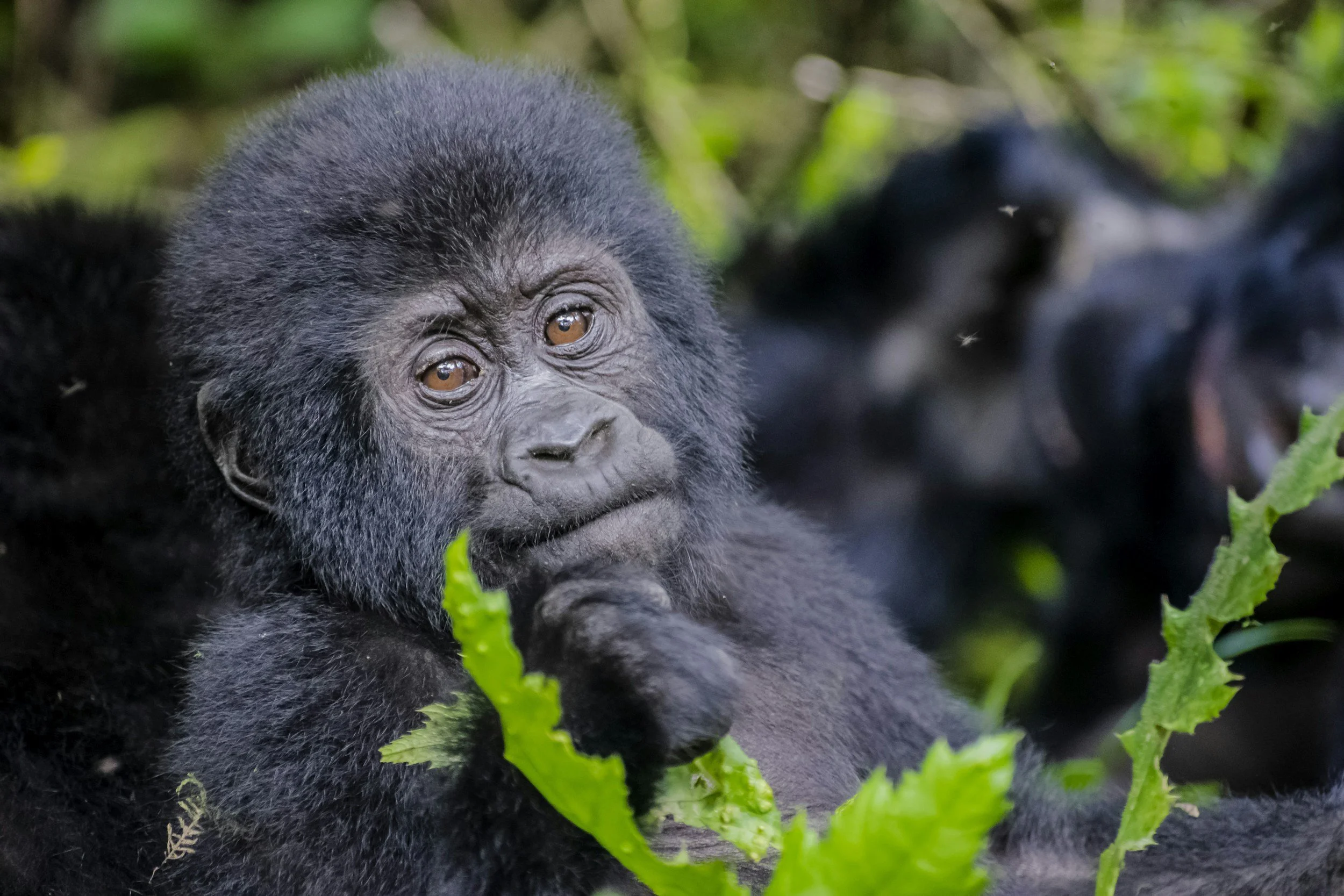Inside the hidden network of pigeon poachers
Over 100 pigeons vanished from New York City streets in a single afternoon, victims of a seedy trafficking network that nets birds for illegal sale in Pennsylvania.
“I cried later, when I described it to others. “I especially miss Ella who insisted on being fed by hand. When she wasn’t there that day…” Margaret’s voice trails off. She flicks a finger over a wet cheek.
Ella and Margaret
In a black “Defend Animals” t-shirt, Margaret relives the afternoon she realized over 100 NYC birds she knew, loved and fed daily, had been taken. “They trusted me. They waited for me. But Evil came and scooped them up.”
Margaret is not alone. In Bushwick, Brooklyn, Tina Piña grieves the loss of half the flock she regularly feeds-- nearly 150 feathered friends gone. Asked what happened, Tina describes a seedy network of traffickers, netting New York birds, bringing them to Pennsylvania and selling them for $4.00 to $6.00 per bird as live target practice.
New York State animal cruelty laws and environmental conservation laws prohibit harassing, trapping and transporting wildlife-- including pigeons-- across state lines. But catching and trafficking these urban icons became a crime in November 2019, when NYC Council Member Carlina Rivera’s bill Int 1202 became Local Law 201. Now, “any person who unlawfully takes a wild bird is subject to a misdemeanor and a fine of up to $1,000.”
Is the law enforced?
Most New Yorkers ignore strange events in public spaces and pigeon netting rarely triggers a 911 call. Then there’s Susan Tang. Three years after Local Law 201 took effect, Susan Tang “witnessed a man throw seed on the ground, net approximately 50 pigeons, violently toss them into his trunk and speed off.” Ms. Tang had the presence of mind to snap photos of the netting and then chase the “dark blue Dodge Caravan until it ran red lights, almost striking a group of pedestrians.” She photographed the speeding car, confident that NYPD could arrest the netter based on the NY plate and her eyewitness testimony.
Yes and no. Officer Shane Currey of New York State’s Dept of Environmental Conservation, easily found both empty car and owner, but explained he could do nothing without witnessing the netting himself-- despite feathers and pigeon poop in the trunk. “I didn’t have proof the owner did anything illegal,” Currey said. “As for the pigeon poop and feathers in the car, the driver claimed to have homing pigeons. That’s legal.” Asked if he thought the man was lying, Officer Currey replied: “Perhaps. But I did not have enough evidence to write him up.”
Fortunately, Police Officer Anjelica Matiz did. On April 30, Matiz responded to an early morning 911 call and arrived in time to witness a man pigeon-netting in Tompkins Square park. Matiz arrested him, charged him with animal cruelty and freed over 25 pigeons already caged in his truck. The truck had Pennsylvania plates; the netter – Dwayne Daley-- lives in Bushkill, PA.
The Pennsylvania connection
After his Miranda warnings, Daley admitted to prosecutors that he captured, traded and sold pigeons. “They go for about four to eight dollars.”
This is not Dwayne Daley’s first brush with New York law: his arrest record goes back to 1982 and his pigeon trafficking to 2007, maybe earlier. In 2021, Daley’s pigeon netting escalated into assault; when a good Samaritan questioned what he was doing, Daley knocked his teeth out. Daley was due to appear in Brooklyn Criminal Court to face that felony assault charge, but the case was removed from the court’s calendar. Despite repeated queries, Legal Aid attorney, Niahm O’Flaherty, did not confirm if Daley’s case was dismissed.
Local Law 201 sponsor, NYC Council Member Rivera, expressed “deep concern” that netters continue capturing New York’s pigeons, despite harsher penalties. She called “for continued vigilance and proactive enforcement.” She then wrote to neighboring Pennsylvania’s House Majority Leader, Matthew Bradford, urging the “swift passage of H.B. 1097 to end this cruelty once and for all.”
Pigeon shooting in PA
The “cruelty” Councilwoman Rivera refers to are Pennsylvania’s pigeon-shooting competitions at which live birds are catapulted from spring-loaded boxes into the air and shot as target practice. Sporadic competitions occur nationwide, but New York state and all its neighboring states have banned the practice-- except Pennsylvania. There, gun clubs and individuals still host pigeon shoots. The most famous was the Labor Day shoot in Hegins, PA, where over 5,000 pigeons would be flung into the air. Roughly 70% of them would be wounded rather than killed outright.
What happened next depended on where pigeons fell and at which shoot. Delaware Riverkeeper Maya K. van Rossum explained that "birds wounded at the Philadelphia Gun Club tumbled into the Delaware River, where they flounder, get water-logged and slowly drown, poisoning river water with lead, bismuth, tungsten, copper, steel and other metals.” But at Hegins, “trapper boys would rush out to break the necks of birds who fell onto the field,” veterinarian Roberto Teti explained. Dr. Teti, who later examined wounded birds and documented their injuries, recalls the Hegins spectacle. “It was hard to witness boys so eager to kill birds,” he said.
Yet what shocked Dr. Teti the most was the Klu Klux Klan recruiting in full regalia. “A black police officer held the crowd back so that the KKK could march. Being so close to hatred was eye-opening.”
Once Pennsylvania Supreme Court ruled that PSPCA officers could enter and enforce state animal cruelty laws, Hegins organizers dropped pigeon-shooting for wine tasting. But private gun clubs (like Philadelphia Gun Club) and individuals continue shooting live birds, despite non-lethal options, like zig-zagging clay saucers.
We asked Heidi Prescott of Humane World for Animals why pigeons continue to be trafficked, transported and maimed this way. “They claim it’s tradition,” Ms. Prescott replied. Prof. Simon Bronner, who attended the Hegins shoot for years, notes that “[T]he prevailing motto for shoot supporters, emblazoned on shirts and hats was: ‘The Tradition Continues’.”
Staunch upholders of rural tradition included politically-connected men like former Republican delegate Edward B. DiDonato, former Berks County Judge Adolph Antanavage and former Pennsylvania state representative Michael G. Tobash. These men shot, organized, funded or defended competitions where thousands of birds perished.
But live shoots are in decline. Antanavage and Tobash have retired, hunters are publicly criticizing pigeon shoots and former donors (like the NRA) have cooled. “Pigeon shoots are rare, even in Pennsylvania; it’s down to Bucks County now,” Ms. Prescott said.
All the more reason to have Buck County’s state representative, Perry Warren, sponsor H.B. 1097, a bill banning pigeon shoots statewide. In an email, Rep. Warren reminded us that his bill “passed the House Judiciary Committee last session,” as he hopes it will again “before being brought before the full House and then Senate.”
What can you do?
Thank Rep. Warren for his bill (717 787-5475; pwarren@pahouse.net). If you live in Pennsylvania, urge your Pennsylvania state representative (you can find your representative here) to support H.B. 1097. It will help New York’s birds, too.
We Have A Favor To Ask…
Species Unite amplifies well-researched solutions to some of the most abusive animal industries operating today.
At this crucial moment, with worldwide momentum for change building, it’s vital we share these animal-free solutions with the world - and we need your help.
We’re a nonprofit, and so to keep sharing these solutions, we’re relying on you - with your support, we can continue our essential work in growing a powerful community of animal advocates this year.







A judge has issued Pennsylvania’s first habeas corpus order for a nonhuman animal, advancing NhRP’s fight to move five African elephants from the Pittsburgh Zoo to a sanctuary.